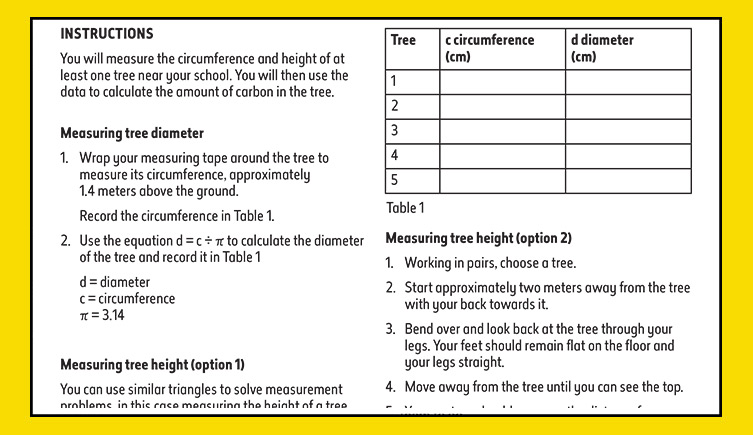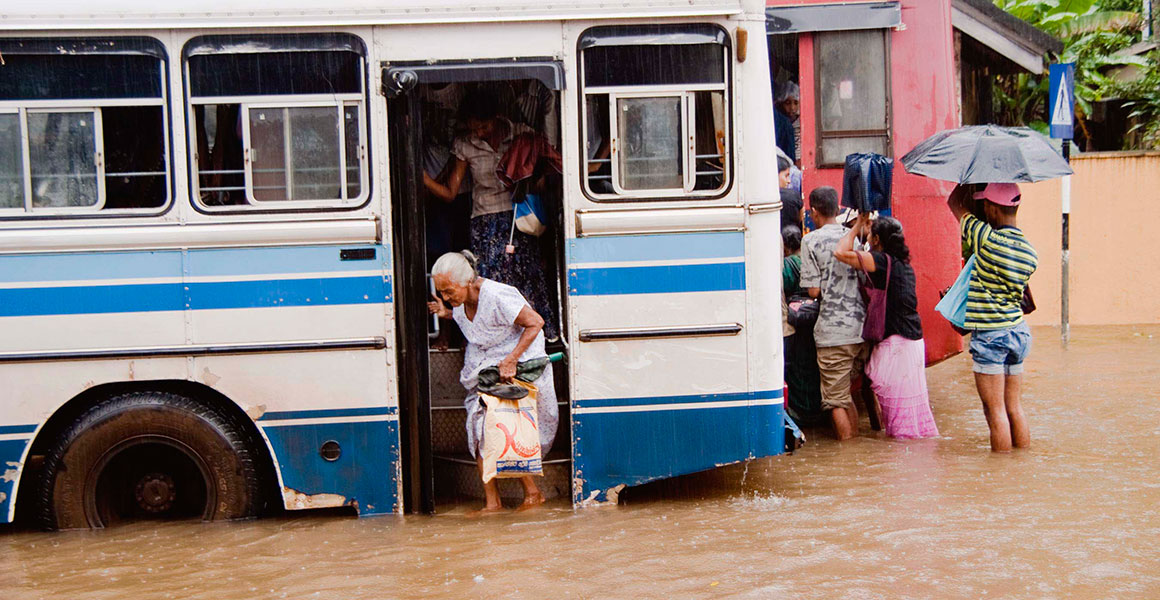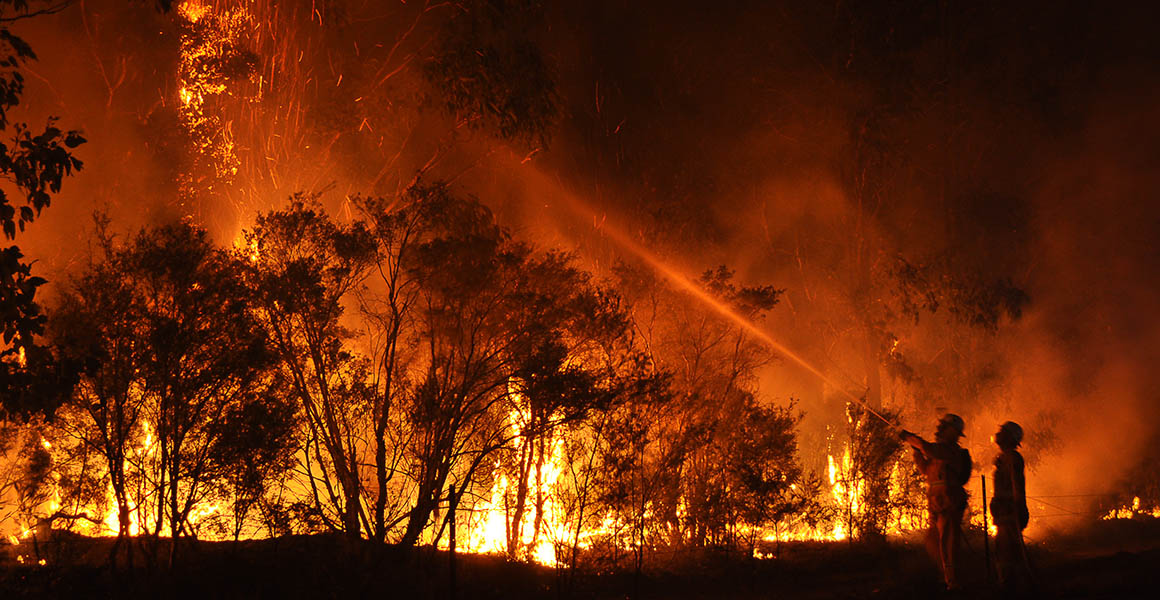Planet Earth
Biodiversity and Interdependence
I understand how animal and plant species depend on each other and how living things are adapted for survival. I can predict the impact of population growth and natural hazards on biodiversity. SCN 4-01a
- Describes how plants and animals depend on each other for food, shelter and pollination, using scientific vocabulary such as ‘population’, ‘community’ and ‘species’.
- Explains the possible effects of removal or addition of species on food webs and biodiversity.
- Summarises research findings to provide examples of structural, physiological and behavioural adaptations which lead to species survival.
Processes of the planet
I can explain some of the processes which contribute to climate change and discuss the possible impact of atmospheric change on the survival of living things. SCN 3-05b
- Explains how the levels of carbon dioxide in the atmosphere have increased over time, for example, through respiration of organisms, deforestation and increased combustion of fuels.
- Draws on supporting evidence, quotes and sources to demonstrate an association between carbon dioxide in the atmosphere and increasing global temperatures as a result of the greenhouse effect.
I can use my knowledge of the interactions and energy flow between plants and animals in ecosystems, food chains and webs. I have contributed to the design or conservation of a wildlife area. SCN 2-02a
- Describes how energy flows between plants and animals in more complex food chains and webs and ecosystems, using vocabulary such as ‘producers’, ‘consumers’ and ‘herbivore’.
Biological Systems
Body systems and cells
I have explored the role of technology in monitoring health and improving the quality of life. SCN 3-12b
- Uses a variety of instruments to monitor and record aspects of health, for example, pulse rate, blood pressure and recovery rate and gives examples of other aspects of health that may be monitored, for example, cholesterol and BMI.
- Researches one condition that is screened for (for example, bowel cancer, macular degeneration and diabetes) and describes the symptoms of the condition.
I have collaborated with others to find and present information on how scientists from Scotland and beyond have contributed to innovative research and development. SCN 3-20a
- Collaborates with others to research how scientists, and those who use science in their jobs, have contributed to the development of scientific ideas.
- Communicates findings in a suitable way to give an example of how scientists contribute to innovative research and development.
- Gives examples of how skills developed through science are used in a wide variety of jobs and careers including science, technology, engineering and mathematics (STEM) careers.
Topical Science
Through research and discussion, I have contributed to evaluations of media items with regard to scientific content and ethical implications. SCN 3-20b
- Demonstrates understanding of bias and separates fact from opinion taking into account a range of reasons for bias, for example, selective sampling and political views.
- Analyses the scientific content in media items and presents a reasoned argument on the ethical implications of the scientific issue being explored.
I have researched new developments in science and can explain how their current or future applications might impact on modern life. SCN 4-20a
- Researches and communicates developments in science, explaining how current and future applications might impact on life.
- Demonstrates increasing understanding of how the transferrable skills developed through the sciences are used in a wide variety of jobs including science, technology, engineering and mathematics (STEM) careers.
Having selected scientific themes of topical interest, I can critically analyse the issues, and use relevant information to develop an informed argument. SCN 4-20b
- Selects and analyses scientific content of topical interest from a range of sources, including the media.
- Identifies examples of bias in sources and justifies decisions in separating fact from opinion.
- Critically analyses a scientific issue and gives consideration to the ethical, moral, environmental, social or political implications of the scientific theme selected to develop an informed argument.
Technologies
Impact, contribution, and relationship of technologies
I can identify the costs and benefits of using technologies to reduce the impact of our activities on the environment and business. TCH 3-07a
- Demonstrates an understanding of the impact of technologies on the environment and business.
- Searches, edits and manipulates text and numbers using appropriate hardware and software.
Design and construct models/product
I can create solutions in 3D and 2D and can justify the construction/graphic methods and the design features. TCH 3-09a
- Uses aspects of the design process to reach a solution for a given brief
- Identifies relevant design factors in a design brief
- Applies knowledge of design factors and construction methods to justify a design solution
- Uses tools and equipment to manufacture models/products
- Applies safe working practices when creating a model/product
- Extracts dimensions from a drawing and transfer these onto materials to create a model/product
Social Studies
People, place and environment
I can identify the possible consequences of an environmental issue and make informed suggestions about ways to manage the impact. SOC 3-08a
- Provides a simple explanation of at least three consequences of an environmental issue, and for each suggest how they could be managed.
Third Level Scientific Skills
Inquiry and Investigative Skills:
Presents scientific findings:
- Communicates effectively in a range of ways, for example, orally and through scientific report writing
Scientific Analytical Thinking Skills:
- Applies scientific analytical thinking skills, with increasing independence, working with less familiar and more complex contexts.
- Applies understanding of an increasing range of science concepts to solve problems and provide solutions.
- Demonstrates further development of creative thinking including through the engineering processes of design, construction, testing and modification.
Skills and Attributes of Scientifically Literate Citizens:
- Demonstrates understanding of the impact of science on society and debates and discusses the moral and ethical implications of some scientific developments, demonstrating respect for the views of others.
- Expresses informed views about topical scientific issues, including those featured in the media, based on evidence and demonstrating understanding of underlying scientific concepts.
- Demonstrates increased awareness of creativity and inventiveness in science and the use of technologies in the development of sciences.
- Demonstrates understanding of the relevance of science to their future lives and the role of science in an increasing range of careers and occupations, including science, technology, engineering and mathematics (STEM) careers.






